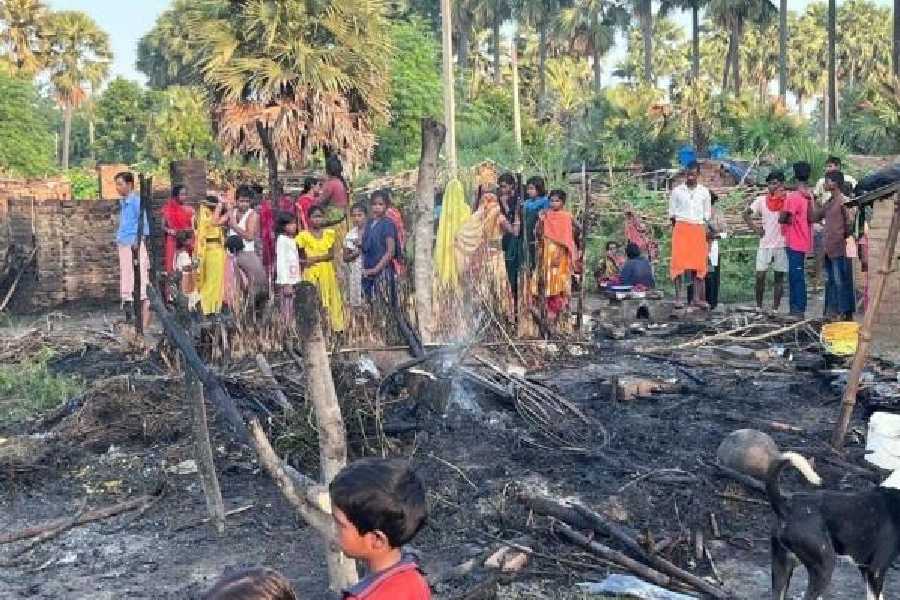The violence in Bihar’s Nawada district in which over 30 houses in a Mahadalit neighbourhood were torched has surprised many as the majority of the accused are also Dalits.
The victims at the Krishna Nagar Dalit Tola belonged to the Musahar and Ravidas castes while the alleged attackers were from the Paswan caste.
An FIR has been registered against 28 people and around two dozen have been arrested in connection with the incident.
Once infamous for its feudal set-up, might-is-right mindset, virulent casteism, caste wars and atrocities on Dalits, Bihar has no previous record of such collective violence in which both sides belong to the Scheduled Caste.
According to socio-political experts, feudalism is adapting to the changing society in the state and replicating itself among the Dalits to expand.
“None of the caste groups are homogenous and the Dalits are also not an exception. There are class differences and hierarchies among them. So Paswans and Dhobis will consider themselves as better or higher and not sit or eat with those in the lower rungs like the Mehtars, Doms or Ravidas,” N.K. Chaudhary, former dean of social sciences at Patna University, told The Telegraph.
“Feudalism, which has survived and adapted itself to become the cultural ethos of the country, has percolated among the Dalits. They may not be the landed gentry, but the Nawada clash was over a piece of land. It was a result of the feudal mindset that focuses on land and money,” Chaudhary added.
Nandu Paswan, the prime accused, is said to be a retired police officer.
Pushpendra, chairperson of the Patna centre of the Tata Institute of Social Sciences (TISS), rejected the idea of a Dalit versus Dalit strife but said that “land” was at the centre of the dispute that turned violent.
“The dispute over land worth several crores of rupees has been sub judice for several decades but escalated into violence because of the ongoing land survey in the state as it has called for proof of ownership. Land is the single largest reason for conflict and murder in Bihar. Successive governments and the judiciary have failed to resolve the issue,” Pushpendra told this newspaper.
Blaming the state government for conducting a land survey without preparation, Pushpendra suggested that it should have taken the judiciary into confidence to expedite the existing land-related cases and then gone ahead with the survey.
The Scheduled Castes constitute 19.65 per cent of the state’s 13.07 crore population. The Paswans at 5.3 per cent are the largest caste among the Dalits and the second-largest caste overall after the Yadavs who constitute 14.3 per cent of the population.
The Paswans are known for their martial ability and mostly serve as guards and village chowkidars besides working in the agriculture sector. Recently, they have shifted to jobs in the public and private sectors.
With their numbers and the political awakening brought about by former Union minister Ram Vilas Paswan, the Paswan caste gets an edge among the Dalits. The Ravidas caste makes up 5.25 per cent of the population but is neither politically united nor has any party like the BSP in Uttar Pradesh to back it. The Musahars are 3.1 per cent of the population here but are far behind the others despite giving a former chief minister — Jitan Ram Manjhi — to the state.
“The Paswans are more aggressive than any other Dalit caste. Their economic condition has also improved a bit because of people moving into government services. The caste that is more in number and is financially better tends to suppress and oppress other castes in the vicinity. There is a possibility that this is what happened in Nawada,” the general secretary of the Bihar Scheduled Castes and Scheduled Tribes Employees Association, Devendra Rajak, said.











